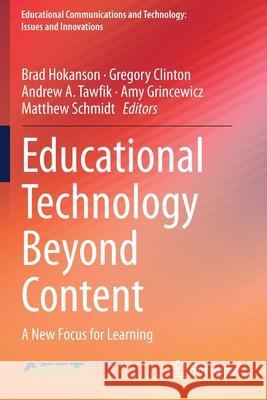Educational Technology Beyond Content: A New Focus for Learning » książka
topmenu
Educational Technology Beyond Content: A New Focus for Learning
ISBN-13: 9783030372569 / Angielski / Miękka / 2021 / 316 str.
Educational Technology Beyond Content: A New Focus for Learning
ISBN-13: 9783030372569 / Angielski / Miękka / 2021 / 316 str.
cena 615,15
(netto: 585,86 VAT: 5%)
Najniższa cena z 30 dni: 578,30
(netto: 585,86 VAT: 5%)
Najniższa cena z 30 dni: 578,30
Termin realizacji zamówienia:
ok. 16-18 dni roboczych.
ok. 16-18 dni roboczych.
Darmowa dostawa!
Kategorie:
Kategorie BISAC:
Wydawca:
Springer
Seria wydawnicza:
Język:
Angielski
ISBN-13:
9783030372569
Rok wydania:
2021
Wydanie:
2020
Numer serii:
000469150
Ilość stron:
316
Waga:
0.46 kg
Wymiary:
23.39 x 15.6 x 1.78
Oprawa:
Miękka
Wolumenów:
01
Dodatkowe informacje:
Wydanie ilustrowane











